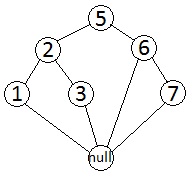is
char** valthe same aschar* val[ ]
Only as formal parameters in a function definition. Otherwise, they're not. I'm assuming we're talking about parameters for the answer to your next question.
when is the formal (
char** val) used
I'll use the array notation when I'm absolutely sure that the function is intended to work with an array or simulated array. I prefer to use pointer notation when the object is known to not be an array or whether it's an array is unknown.
